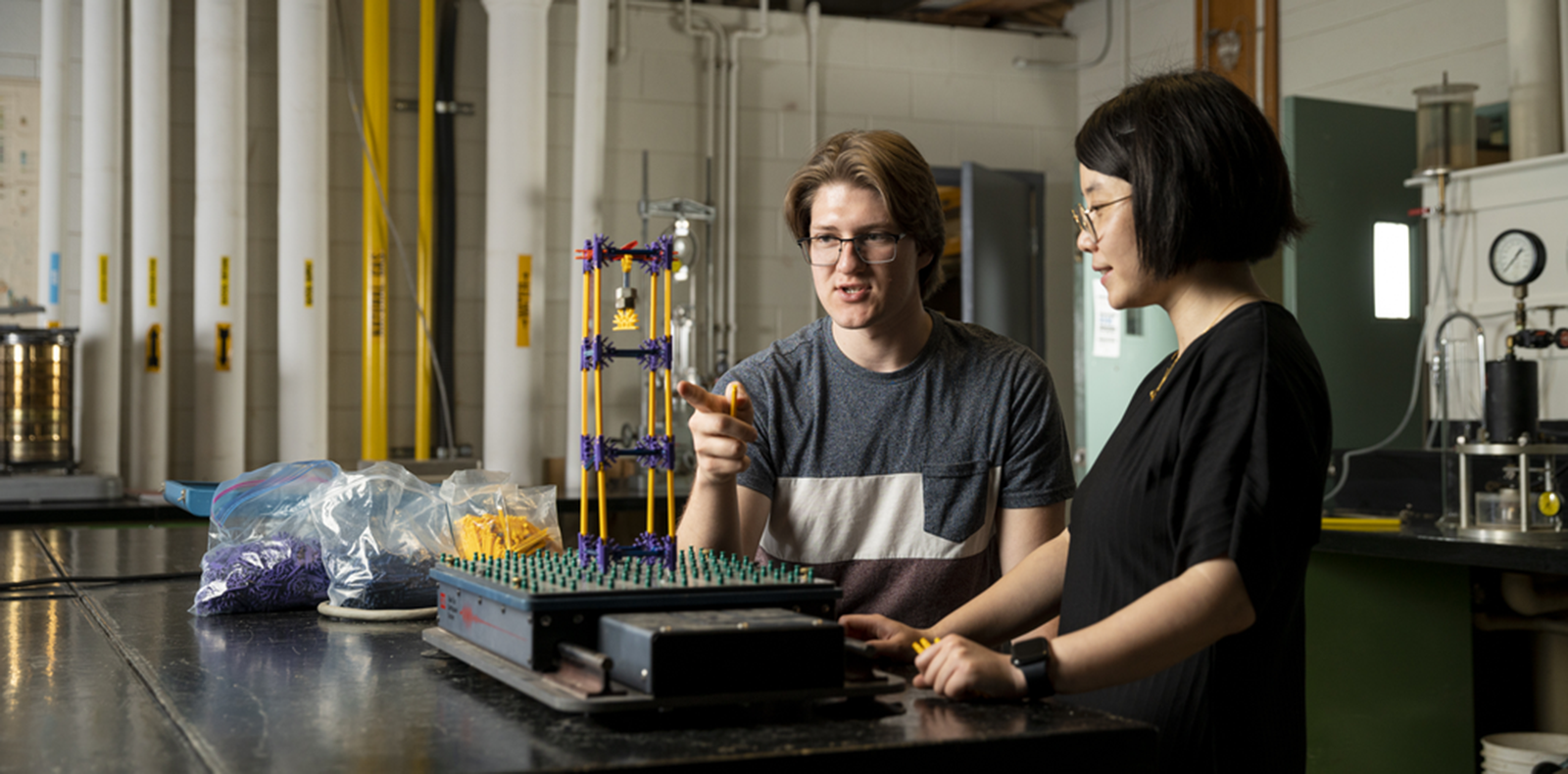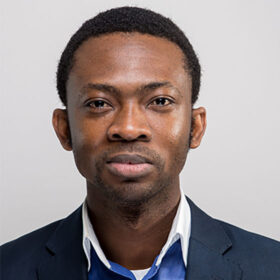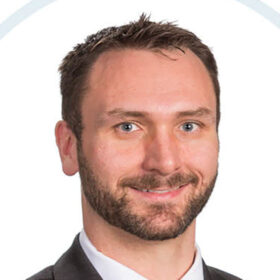-
TECHNICAL ELECTIVE LIST B 3 unit(s) Review of multivariate statistics. Acquiring, interpreting and processing large data sets. Introduction to dimensional reduction techniques such as principal component analysis (PCA) and projection of latent structures (PLS). Introduction to data clustering methods. Chemical and materials engineering applications. Three lectures; one term Prerequisite(s): One of COMMERCE 2QA3, STATS 3Y03, MATLS 3J03 or HTHSCI 2A03 or permission of the department
-
3 unit(s)(cross-listed as CHEM ENG 6Z03)
The physics and chemistry at the “nano” scale including interactions forces, colloids, surface active systems, wetting, adhesion, and flocculation.
Cross-listed: BIOMED 6Z03/CHEM ENG 4Z03/CHEM ENG 6Z03/ -
CIVENG 6CA4 / Construction Management and Automation
4 units
This course covers the fundamental concepts of construction projects and construction management as well as
tools and techniques in construction scheduling, estimating, and project control. The course includes an
introduction to a range of computer-aided construction management tools and concepts including Building
Information Modeling (BIM), automation and telematics, and advanced technological trends in construction -
-
CIVENG 6CM4 / Construction Engineering and Management
3 unit(s)
Fundamental concepts of construction engineering and management; advanced scheduling techniques; scheduling linear projects; improving schedules; time-cost trade-offs; and resource allocation and levelling. The course also covers heavy construction equipment and methods including safety, productivity estimation, earthmoving materials and operations, excavation and lifting, loading and hauling, and sustainability in heavy construction. The materials of the course would be supplemented by visits to construction projects. -
-
CIVENG 6G04 / Pavement Materials and Design
3 unit(s)
Components of highway pavements; ground water and drainage for highway facilities; soil compaction and stabilization; aggregates; bituminous and concrete materials, flexible pavement design; concrete pavement design; interlocking pavement structures. -
-
CIV ENG 6K04 / Modern Methods of Structural Analysis
6 unit(s)
Stiffness method; development and applications in structural analysis. Introduction to finite element method. Influence lines, elastic stability analysis of frames with and without sway effects. Application of computer programs. -
-
CIVENG 6L04 / Design of Water Resources Systems
3 unit(s)
Investigation, planning, analysis, and design of water resources systems. Frequency analysis, design storms, urban drainage and analysis, floodplain analysis and flood control. -
-
CIV ENG 6M03 / Hydrologic Modeling
3 unit(s)
Cross-listed as EARTH SCI 6W03
Principles of numerical modeling and examination of selected hydrologic models. -
-
4 units
The course introduces various structural and non-structural storm water management measures. The design and performance of some of the structural storm water management measures are examined in detail. Modeling and analyses conducted for the planning, design and operation of storm water management systems are the focus of this course. Three lectures, one tutorial (two hours); one term -
-
CIVENG 6T04 / Transportation Engineering II – Modelling Transit and ITS
3 unit(s)
An imperative to developing and maintaining a sustainable urban transportation system lies in ‘mobility’ – recognizing the origin and destination epicentres within a Region and ensuring that there are multiple, viable alternatives for commuters. Traffic and transit modelling is the key to achieving this goal. The modelling of traffic/transit scenarios can facilitate the efficient operation of existing infrastructure as well as the planning and design of future sustainable strategies. This course is intended as a continuation of 3K03 – Introduction to Transportation Engineering with more complex traffic signal modelling, an introduction to Transit Engineering and ITS algorithm development.
Prerequisite(s): CIVENG 3K03 -
-
4 units
This course provides students with an in-depth understanding of traffic operation and transportation network
analysis, including traffic flow models, shockwave analysis, traffic studies, traffic sensors, signalized
intersection design and coordination, analysis of intersection capacity and level of service, and road network
simulation. -
-
CIVENG 6V04 / Biological Aspects of Wastewater Engineering
3 unit(s)
Process, capabilities, hardware, and design equations for the biological processes used in design of wastewater treatment plants. Emphasis on processes such as bio-oxidation, clarification, sludge treatment and disinfection. Leading-edge processes are introduced and design software is used. -
-
3 unit(s)
Theory of finite element method; formulation of finite elements; applications to solid mechanics, field and plate bending problems; algorithms for transient and nonlinear problems; introduction to hybrid and mixed finite elements; development of a finite element code. -
-
Current Topics include:
Applied Advanced Geotechnology (Term 1) taught by Dr. Peijun Guo
Forensic Assessment, non-destructive evaluation and rehabilitation of concrete structures (Term 1) taught by Dr. Moncef Nehdi
Energy Infrastructure Systems: Operation, Management and Resilience (Term 2) taught by Dr. Wael El-Dakhakhni
Reactive Transport Processes in Subsurface Environment (Term 2) taught by Dr. Adedapo Awolayo
Multiscale Design of Sustainable Cementitious Composites (Term 2) taught by Dr. Ousmane Hisseine
Computational Intelligence in Transportation and Supply Chains (Term 2) taught by Dr. Saiedeh Razavi -
-
3 unit(s)
This course will cover fundamentals and advanced methods in environmental systems optimization. A number of systems modeling techniques with a focus on uncertainty quantification will be introduced, and examples of their application to environmental and water resources problems will be discussed. -
-
The course covers topics related to probability theory and statistics, approximate and simulation methods for reliability analysis, risk quantification for engineering systems, basics of probabilistic design, fragility modeling and multi-hazard risk assessment.
-
3 unit(s)
The proposed course covers essential computational and experimental methods in the field of flow and transport in porous media. The methods covered in the course will be applied to solve emerging energy and environment related problems in the subsurface. -
-
3 unit(s)
This course covers a variety of fundamental topics related to traffic safety analysis, including the identification, diagnosis, and remedy of road safety problems, collision prediction models, and the economic assessment of the road safety programs. In addition, the course addresses state-of-the-art proactive safety analysis techniques, including the application of Computer Vision, Artificial Intelligence, and Microsimulation in traffic safety research. -
-
-
-
-
3 unit(s)
2-D and 3-D analyses of stresses and strains. Principal stresses and maximum shear stress. Differential equations of equilibrium, compatibility conditions. Bending of unsymmetrical members. Shear centre. Shearing stresses due to bending in thin-walled open and closed members. Torsion of closed and open sections, warping, non-uniform torsion and warping stresses. Theory of plates- Rectangular and circular plates problems. Buckling of elastic columns. Flexural-Torsional buckling of beams. Axial-torsional buckling of columns. Plate buckling (local buckling), shear of buckling of plates. -
-
-
-
-
-
-
-
3 units
Fibre-reinforced cementitious composites (FRCC): material selection; low-CO2 binders; mix optimization and
design methods; mechanics of FRCC; fibre-matrix interactions; mechanics of strain-hardening FRCC;
production; rheology; early-age behavior and time-dependent behavior; mechanical properties & durability;
structural applications; case studies. -
-
3 units
(Cross-listed as CHEM ENG 721)
This course will cover fundamental principles for coupling chemical reactions and fluid transport in natural
and engineered subsurface environments. Examples of reactive transport processes and their applications to
environmental, energy, and water resource challenges will be discussed. The student will solve reactive
transport problems by gaining hands-on experience developing computer programmes in MATLAB, C++,
PYTHON, or FORTRAN, as well as utilizing existing open-source commercial geochemical modelling software
(EQ3/6 and PFLOTRAN). -
-
3 units
This graduate-level course covers the fundamentals and applications of Machine Intelligence for Civil Engineering researchers and practitioners. The course focuses on training students in meta-research skills on AI and machine learning to facilitate intelligent and adaptive behaviour in complex and changing civil engineering systems. Students will exercise matching proper AI/ML approaches or hybrid methods to their research problems in a way that is tolerant of imprecision, uncertainty, partial truth, and approximation that is inherent in the transportation and supply chain domain. -
-
3 unit(s)
S.E. Chidiac
Portland Cement and its constituent phases; role of water in hydrated cement systems, hydration parameters, limiting hydration, state of water, porosity, engineering properties; structural models for C-S-H; hydration mechanisms: through solution, solid state; pore structure determination; engineering properties; role of admixtures and supplementary cementing materials; analysis of fresh and hardened concrete; durability; transport properties, relationships between transport properties and durability; in-situ evaluation of concrete structures; materials and techniques for repair; service life/durability design of concrete structures. -
-
CIV ENG 735 / Advanced Water and Wastewater Treatment Processes
3 unit(s)
Introduction of advanced treatment processes in water and wastewater treatment. 1. Membrane filtration systems: microfilters and ultrafilters in drinking water treatment; membrane bioreactors in wastewater treatment; nanofiltration and reverse osmosis in desalination and water reclamation; ion-exchange membrane applications. 2. Advanced oxidation processes: OH radical reactions; kinetics of radical chain reactions; OH radical production using ozone, hydrogen peroxide, ultra violet radiation, and photocatalysis. 3. Bioelectrochemical systems for wastewater treatment: thermodynamics and kinetics of electrode reactions; ionic transport under electric fields; exoelectrogenic bacteria; microbial fuel cells; microbial electrolysis cells; electroanalytical techniques using potentiostats. -
3 unit(s)
Formulation of equations of motion; one degree-of-freedom systems: undamped, damped, free vibration, forced vibration, nonlinear systems; numerical techniques: time domain, frequency domain. Multi-degree-of-freedom systems: modal analysis, characteristics of Eigen value problems, applications; continuous systems; dynamic loads: earthquake and wind loading, vibrating machines, moving loads. -
-
CIV ENG 740 / Seismic Behaviour, Analysis and Design of Masonry Structures
3 unit(s)
The course covers different concepts of seismic design, component behaviour, system-level performance and detailing; slender shear wall behaviour, location strategies, analysis procedure, equivalent systems, design for strength and ductility, coupled walls, capacity design of cantilever wall systems; squat walls; infill walls and out-of-plane seismic response, effect of openings, assessment of masonry structures; performance- and displacement-based seismic design; seismic Design, Code philosophies in North America CSA-S304.1, CSA-A 23.3 and NBCC and ASCE 41, MSJC and ASCE7/IBC] (USA); experimental testing techniques: quasi-static and dynamic testing, and use of scaled-models. -
-
3 unit(s)
P. Guo
An understanding of soil behaviour is a fundamental requisite to a wide variety of geotechnical engineering applications, such as foundation design, soil-structure interaction and geotechnical earthquake engineering. Appropriate numerical modelling also highly depends on a better understanding of soil behaviour. This course, which focuses on the behaviour of soils under various conditions, their theoretical descriptions and laboratory testing, will provide students the knowledge and understanding of fundamental soil behaviour and of the underlying scientific principles. -
CIV ENG 749 / Multivariate Statistical Models and Data Processing Methods in Civil Engineering
3 unit(s)
The course focuses on the practical procedures to develop, apply, and interpret multivariate statistical models, while considering the inherited limitations and the advantages of each modelling technique. Such procedures will be facilitated through the course weekly assignments. -
-
3 unit(s)
This course will provide various aspects of microbiology that are essential for understanding microbial functions and interactions in environmental engineering, including wastewater treatment engineering. Relevant course topics include: Microbial cell structure and function; metabolism and energetics; kinetics of microbial reactions; genetics of microorganisms; biological nutrient removal; biosolids treatment and methanogenesis; microbial ecology in bioreactors; and exoelectrogenic bacteria. Molecular biology techniques that are commonly used in environmental science will be introduced. Waterborne pathogens and disinfection processes will be discussed in this course. -
-
3 unit(s)
Prerequisite(s): 4N04 (Steel Structures) or equivalent; 730 (Earthquake Engineering) or equivalent
Students will learn about the behaviour of steel seismic force resisting systems, such as moment-resisting frames, concentrically braced frames (with traditional or buckling-restrained braces), eccentrically braced frames, and self-centering systems. For each system, students will come to understand the associated provisions of the Canadian Steel Standard S16. In addition, students will develop experience with advanced numerical techniques for assessing the seismic performance of these systems, including nonlinear static and dynamic analysis. -
-
CIV ENG 749 / Numerical methods in water and wastewater treatment processes
3 unit(s)
This course will cover numerical methods for solving various algebraic and differential equations. The student will learn fundamentals of numerical methods and their applications in engineered systems for water and wastewater treatment. The student will get hands on experience in developing computer programs using Visual Basic Applications or C++. This course is not designed for using existing commercial numerical software, including MATLAB, MATHEMATICA, BioWin, GPS-X, SIMBA, and etc. -
-
3 unit(s)
The objective of this course is to provide a survey of advanced statistical and data-driven methods in hydrology and water resources engineering, and to apply selected methods to hydrologic modeling and water resources problems solving. -
-
CIV ENG 770 / Advanced Groundwater Flow and Contaminant Transport
3 unit(s)
(cross-listed as EARTH SCI 750)
This course will cover the theory, equations, fundamental principles, and processes of the flow of fluids and transport of contaminants in soils and groundwater at an advanced level. -
-
CIV ENG 779 / Aquatic Chemistry
3 unit(s)
This course will cover chemical equilibrium, reaction thermodynamics, activity, acid-base chemistry, coordination chemistry, redox reactions, precipitation and dissolution and contaminant detection and quantification. It is recommended that students have a background in year 1 undergraduate chemistry. -
-
3 unit(s)
Introduction to measurement and computational techniques of surveying, the theory of measurement and errors, adjustment of observations; laboratory measurement and instrumentation with a focus on geometric profiles for road networks and construction; formal Civil Engineering drawings, interpretation, and communication of information.
Two lectures, one tutorial (two hours), one lab (three hours); first term -
4 unit(s)
Sustainability, ecosystems and climate change; mass balance; reaction kinetics; reactor theory; water quality; water and wastewater treatment; solid waste management; air pollution control.
Three lectures, one tutorial (two hours), one lab (three hours); first term
Prerequisite(s): Registration in Level II Engineering or permission of the Department -
4 unit(s)
Review of stress/strain state and strain-displacement relations; plastic deformations and residual stresses due to axial loading and bending; torsion of noncircular and thin-walled sections; unsymmetric bending and eccentric axial loading, shear stresses and unsymmetric loading of thin-walled members; transformation of stress and strain; stress/strain invariants; yield and fracture criteria energy methods; stability of columns.
Three lectures, one tutorial (two hours), one lab (three hours); second term
Prerequisite(s): Credit or registration in CIVENG 2P04 Antirequisite(s): MECHENG 3A03 -
3 unit(s)
Numerical techniques including error analysis, root finding, linear algebraic equations, curve fitting, integration and differentiation, ordinary differential equations; sensitivity analysis; use of several software packages for numerical analysis; civil engineering applications.
Two lectures, one tutorial (two hours), one lab (three hours); first term
Prerequisite(s): Credit or registration in CIVENG 2P04
Antirequisite(s): MECHENG 3F04 -
3 unit(s)
Fundamentals of engineering geology; earth structure and rock types; geological structures; earth surface processes; engineering properties and behaviour of soils and rocks; fundamentals of groundwater conditions, flow, and monitoring; geological material used in construction; subsurface exploration and site investigation.
Two lectures, one tutorial (two hours), one lab (three hours); second term
Prerequisite(s): Registration in Level II Engineering or permission of the Department -
4 unit(s)
Fluid properties; hydrostatics; continuity, momentum and energy equations; potential flow; laminar and turbulent flow; flow in closed conduits, transients, open channel flow; hydraulic cross-sections.
Three lectures, one tutorial (two hours), one lab (three hours); second term
Prerequisite(s): CIVENG 2P04, MATH 2Z03; credit or registration in MATH 2ZZ3
Antirequisite(s): MECHENG 3O04 -
4 unit(s)
Principles of statics as applied to rigid bodies. Internal forces, shear and bending moment diagrams, Stress and strain, elastic behaviour of simple members under axial force, torsion, bending and traverse shear. Principal stresses.
Three lectures, one tutorial (two hours); first term
Prerequisite(s): PHYSICS 1D03 and registration in Level II or above of a Civil or Materials Engineering program
Antirequisite(s): MECHENG 2P04, ENGINEER 2P04, ENGPHYS 2P04 -
CIVENG 2Q03 HAS BEEN REPLACED WITH CIVENG 2X03
-
3 unit(s)
A classroom and field-based course introducing students to civil engineering works in the urban and natural environment, software commonly used in industry, and local firms, sites, and facilities related to civil engineering.
Two lectures, one tutorial (two hours), one lab (three hours); first term
Prerequisite(s): Registration in Level II of a Civil Engineering program or permission of the Department -
3 unit(s)
Composition of soils, soil identification and classification; compaction; seepage theory; effective stress concept; stresses and displacements using elastic solutions; consolidation theory; numerical solutions.
Two lectures, one tutorial (two hours), one lab (three hours); first term
Prerequisite(s): CIVENG 2J03 -
3 unit(s)
Shear strength characteristics and failure criteria for soils; direct shear, triaxial, plane strain and field tests; earth pressure theory; bearing capacity theory; slope stability and embankment analysis.
Two lectures, one tutorial (two hours), one lab (three hours); second term
Prerequisite(s): Credit or registration in CIVENG 3A03 -
3 unit(s)
Mathematical models and systems; economic comparison of projects; optimization; linear, nonlinear and dynamic programming; simulation modelling. With an emphasis on transportation and other civil engineering applications.
Two lectures, one tutorial (two hours); first term
Prerequisite(s): Registration in Level III or above of any Engineering program -
4 unit(s)
Structural analysis and modelling of linear elastic truss, beam and frame structures; stress resultants and deformations of statically determinate structures; methods for analysis of indeterminate structures; stiffness matrix method; plane frame computer analysis.
Three lectures, one tutorial (two hours); first term
Prerequisite(s): CIVENG 2C04 and CIVENG 2P04 -
4 unit(s)
Design by limit states methods to ensure adequate capacities for bending moment, shear and diagonal tension, axial force, bond and anchorage; and design to satisfy serviceability requirements for deflection and cracking; practical design requirements; interpretation of building code for behaviour of structures.
Three lectures, one tutorial (two hours), one lab (three hours); second term
Prerequisite(s): Credit or registration in CIVENG 3G04, 3P03 or 3P04 -
3 unit(s)
A transportation impact study serves as the focus for group projects, and provides the context for application of material on traffic flow characteristics, capacity and control for signalized and unsignalized intersections, and travel demand forecasting. Safety; social impacts.
Two lectures, one tutorial (two hours); first term
Prerequisite(s): Registration in Level III or above of any Engineering program -
3 unit(s)
Physical, chemical and biological characteristics of water; stoichiometry; thermodynamics; acid/base chemistry; carbonate system; nitrogen and phosphorous cycles; mathematical modeling of physical systems; water quality standards.
Two lectures, one tutorial (two hours), one lab (three hours); second term
Prerequisite(s): Credit or registration in CHEMENG 2D04 or CIVENG 2B04 -
3 unit(s)
Analysis/design of water distribution networks; analysis and design of wastewater collection systems; pumps; surface and groundwater supplies.
Two lectures, one tutorial; second term
Prerequisite(s): CIVENG 2O04; and credit or registration in either STATS 3J04 or IBEHS 4C03 -
4 unit(s)
Characteristics, behaviour and use of Civil Engineering materials: concrete, metals, wood, and composites; Physical, chemical and mechanical properties; Quality control and material tests; Concepts of Structural design, limit states design, estimation of structural loads.
Three lectures, one tutorial (two hours), one lab (three hours); first term
Prerequisite(s): CIVENG 2C04; and MATLS 1M03 or ENGINEER 1P13 A/B or IBEHS 1P10 A/B -
4 unit(s)
Hydrologic cycle; climate; hydraulic and hydrologic processes, precipitation; unit hydrographs; hydrologic statistics, hydrologic routing; introduction to groundwater flow.
Three lectures, one tutorial (two hours); one term
Prerequisite(s): CIVENG 3M03 -
4 unit(s)
Building science theory, heat, air and moisture transfer, building envelope, building systems, energy consumption, sustainability considerations, LEED design.
Three lectures, one tutorial (two hours); one term
Prerequisite(s): CIVENG 3P04 and CIVENG 3J04 or registration in Level IV or above in the Integrated Biomedical Engineering & Health Sciences (IBEHS) program -
4 unit(s)
This course covers the fundamental concepts of construction projects and construction management as well as tools and techniques in construction scheduling, estimating, and project control. The course includes an introduction to a range of computer-aided construction management tools and concepts including Building Information Modeling (BIM), automation and telematics, and advanced technological trends in construction.
Three lectures, one tutorial (two hours); one term
Prerequisite(s): ENGINEER 3PX3 or IBEHS 4P04
Anti-Requisite(s): CIVENG 3RR3, 4CM4 -
4 unit(s)
Introduction to linear elastic structural dynamics including single and multi degree-of-freedom systems. Introduction to seismic design philosophy including capacity design, ductility, and collapse mechanisms. Design, detailing, and analysis of selected lateral force resisting systems will be covered using current design codes.
Three lectures, one tutorial (two hours); one term
Prerequisite(s): CIVENG 3G04 and CIVENG 3J04 and credit or registration in CIVENG 4N04
Antirequisite(s): CIVENG 4ED4, 4SD4 -
4 unit(s)
Components of highway pavements; ground water and drainage for highway facilities; soil compaction and stabilization; aggregates; bituminous materials; asphalt mix design; flexible and rigid pavement design; embankment design.
Three lectures, one tutorial (two hours), one lab (three hours); one term
Prerequisite(s): CIVENG 3B03 -
4 unit(s)
Stiffness method; development and applications in structural analysis. Introduction to finite element method. Influence lines, elastic stability analysis of frames with and without sway effects. Application of computer programs.
Three lectures, one tutorial (two hours); one term
Prerequisite(s): CIVENG 3G04 -
4 unit(s)
Investigation, planning, analysis and design of water resources systems, climate change. Introduction to GIS tools. Frequency analysis, design storms, urban drainage and analysis, floodplain analysis and flood control.
Two lectures, one tutorial (two hours), one lab (three hours); one term
Prerequisite(s): CIVENG 3M03 -
4 unit(s)
Introduction to structural design in steel: gravity and lateral loads and load paths in buildings, tension members, bolted and welded connections, compression members, braced and unbraced beams, combined axial and flexural loading.
Three lectures, one tutorial (two hours); one term
Prerequisite(s): CIVENG 3G04, CIVENG 3P04 -
4 unit(s) This course covers the fundamental concepts of movement and storage of water within aquifer systems and its importance in the hydrologic cycle. The topics include Darcy’s equation, the groundwater flow equations, aquifer properties, heterogeneity, anisotropy, aquifer testing, well hydraulics, groundwater-surface water interaction, groundwater resources and management. Physical processes influencing groundwater contamination are also introduced. Three lectures, one tutorial (two hours); one term Prerequisite(s): CIVENG 2O04, CIVENG 2J03, MATH 2Z03
-
4 unit(s)
Principles of foundation design; stability analysis; bearing capacity, settlement and location, footings, deep foundations, piles, pile groups and drilled piers; retaining walls.
Three lectures, one tutorial; one term
Prerequisite(s): CIVENG 3B03 -
4 unit(s) The course introduces various structural and non-structural stormwater management measures. The design and performance of some of the structural stormwater management measures are examined in detail. Modeling and analyses conducted for the planning, design and operation of stormwater management systems are the focus of this course. Three lectures, one tutorial (two hours); one term Prerequisite(s): CIVENG 3B03
-
4 unit(s)
Introduction to advanced traffic signal modelling, basic Transit Engineering concepts and Intelligent Transportation Systems.
Three lectures, one tutorial (two hours); one term
Prerequisite(s): CIVENG 3K03 -
4 unit(s)
Traffic operation and transportation network analysis, including traffic studies, traffic flow models, shockwave analysis, advanced analysis of signalized intersections, capacity and level of service analysis, and road network simulation.
Three lectures, one tutorial (two hours), one lab (two hours); one term
Prerequisite(s): CIVENG 3K03 -
4 unit(s)
Microbial kinetics and cell yield in biological wastewater treatment; conventional activated sludge systems; models of activated sludge systems; aeration systems; sedimentation; membrane bioreactors; biological nutrient removal; sequential batch reactors; biosolids treatment, including sludge thickening, anaerobic digestion and dewatering; attached growth reactors, including trickling filters, rotation disk contactors and fluidized bed reactors.
Three lectures, one tutorial or one lab; one term
Prerequisite(s): CIVENG 3L03 or CHEMENG 2D04 or registration in Level IV or above in the Integrated Biomedical Engineering & Health Sciences (IBEHS) program or permission of the department
Antirequisite(s): ENGINEER 4U03 -
-
4 unit(s)
Structural systems and load distribution, design of masonry, wood, and cold-formed steel. Introduction to building envelope design.
Three lectures, one tutorial (two hours); one term
Prerequisite(s): CIVENG 3J04, CIVENG 3G04 and credit or registration in CIVENG 4N04 -
6 unit(s)
Capstone project supervised by faculty members in civil engineering, involving design and synthesis that reinforces concepts from structural and/or municipal engineering. Exposure to elements of teamwork, sustainability, social responsibility and project management.
Three lectures, two hours of design studio; both terms
Prerequisite(s): CIVENG 3G04, CIVENG 3L03, CIVENG 3J04 and registration in a final level of a Civil Engineering program or permission from the Department
Co-requisite(s): CIVENG 4N04 -
4 unit(s)
Bridge loads and analysis for load effects. Design of (steel beam – concrete slab) composite floor system and steel plate girders. Stresses, ultimate strength, and design of pre-stressed concrete girders. Fatigue Design.
Three lectures, one tutorial (two hours); one term
Prerequisite(s): CIVENG 3G04, 3J04 or registration in CIVENG 4N04 -
4 unit(s)
An experimental and/or analytical investigation related to any branch of civil engineering, under the direction of a faculty member. Students choose a project from a list of department approved projects. The student may be required to present a seminar and will submit a final written report before April 1.
Two labs (three hours); both terms. The hours assigned can be freely scheduled to suit those involved in a particular project and may include computation classes, laboratory work, discussion or individual study.
Prerequisite(s): Registration in a final level of a Civil Engineering program, and a SA of at least 9.5 and permission of the department
Antirequisite(s): IBEHS 3I06 A/B -
Introduction to fission and fusion energy systems. Energetics of nuclear reactions, interactions of radiation with matter, radioactivity, design and operating principles of fission and fusion reactors.
Three lectures, one tutorial, one lab (three hours) four times per term; first term
Prerequisite(s): Registration in Level II or above of an Engineering program
Antirequisite(s): ENGPHYS 3D03 -
3 unit(s)
A survey of topics required for the development of near-Earth missions, including orbital mechanics (with a relativity primer), propulsion and power systems, radio and optical communications, effects of radiation, and observational instrumentation.
Three lectures; first term
Prerequisite(s): Registration in Level III or above of an Engineering or Honours Physics program -
3 unit(s)
A systems approach to measurement in which synthesis of topics such as Fourier transforms, signal processing and enhancement, data reduction, modelling and simulation is undertaken.
Three lectures, one lab (two hours) every other week; first term
Prerequisite(s): Registration in Level III or above of any Engineering or Science program
Antirequisite(s): IBEHS 3A03, SFWRENG 3MX3, MECHTRON 3MX3, ELECENG 3TP3, ENGPHYS 3W04 -
3 unit(s)
This course covers the underlying operating principles and defining metrics of biological sensors, and it will discuss the integration of these sensors into systems for diagnostics and health monitoring applications.
Three lectures; second term
Prerequisite(s): Registration in Level III or above in any Engineering program or registration in Level IV or above in the Integrated Biomedical Engineering & Health Sciences (IBEHS) Program. -
-
This course covers the basic principles of light interaction with biological systems and specific biomedical applications of photonics such as optical light microscopy, endoscopic imaging, spectroscopy in clinical diagnosis, flow cytometry, micro-optical sensors, etc. Three lectures; second term Prerequisite(s): Registration in Level III or above in a Faculties of Engineering, Science, or Health Sciences, or the Integrated Biomedical Engineering & Health Sciences (IBEHS) Program Cross-list(s): MEDPHYS 4I03
-
3 units Elastic and Plastic Deformation of Materials. Strengthening Methods. Fracture Mechanisms. Fatigue and Creep failure. Three lectures, one lab (one hour) every other week; second term Prerequisite(s): ENGINEER 2P04 or CIVENG 2P04 and Registration in Materials Engineering; or MECHENG 2P04 and Registration in Mechanical Engineering; or permission of the department
-
-
4 unit(s) Materials indices, materials selection charts, materials selection and design with mechanical and thermo-mechanical constraints, design of hybrid materials, sustainable materials selection and design. Two lectures (two hours), one tutorial (one hour); first term Prerequisite(s): One of ENGINEER 2P04, MECHENG 2P04, CIVENG 2P04 and one of CHEMENG 3A04, MECHENG 3R03; or registration in Level IV or above in Civil Engineering; or permission of the department Antirequisite(s): ENGINEER 4T04
-
-
Application of mechanical engineering principles to biomechanics problems including cellular biomechanics, hemodynamics, circulatory system, respiratory system, muscles and movement and skeletal biomechanics.
Three lectures, one tutorial
Cross-listed: IBEHS 4B03 / MECHENG 4BB3 / MECHENG 6BB3 / BIOMED 6B03
Pre-requisite(s): Registration in Level IV or above of any Engineering program
TERM 1 -
The objective is to learn blood flow mechanics through the circulatory system and its subsystems. The course examines mechanics of circulation, mechanobiology and biomechanics of different components of circulatory system, in-vivo and in-vitro techniques and their medical applications.
Three lectures, one tutorial
Prerequisite(s): Registration in Level IV or above of any Engineering program or Integrated Biomedical Engineering and Health Sciences (IBEHS) program
TERM 2 -
-
Introduction to experimental and computational biomechanics including biomechanical testing concepts and application of finite element methods in simulations of biomechanical structures/systems.
Three lectures
Crosslisted: MECHENG 4CC3 / MECHENG 6CC3 / IBEHS 4XC3
Prerequisite(s): Registration in Level IV or above of any Engineering program.
TERM 2
































